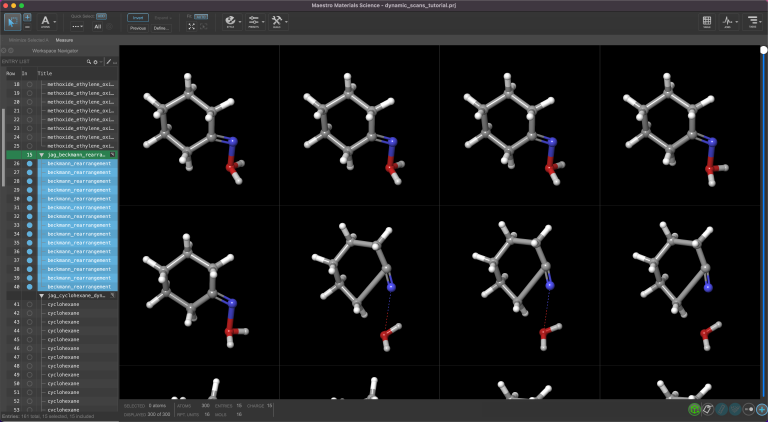 Tutorial
Materials Science
Tutorial
Materials Science
Introduction to Materials Science Maestro Tutorial
An introduction to Materials Science Maestro, covering basic navigation, an intro to building models and several of the key functionalities of the graphical user interface.
- Tutorial
Disordered System Building and Molecular Dynamics Multistage Workflows
Learn to use the Disordered System Builder and Molecular Dynamics Multistage Workflow panels to build and equilibrate model systems.
- Tutorial
Introduction to Geometry Optimizations, Functionals and Basis Sets
Perform geometry optimizations on simple organic molecules and learn basics regarding functionals and basis sets.
- Tutorial
Electronic Structure Calculations of Bulk Crystals Using Quantum ESPRESSO
Learn the basics of the Quantum ESPRESSO interface for periodic density functional theory (DFT) calculations of bulk solids, including convergence testing, geometry optimization, band structures, the density of states (DOS), and the projected density of states (PDOS).
- Tutorial
Machine Learning for Materials Science
Use AutoQSAR to build and rank order numerical QSPR models and apply these models to make predictions on external datasets and analyze these predictions.
- Tutorial
Automated Dissipative Particle Dynamics (DPD) Parameterization
Learn how to build a coarse-grained force field for dissipative particle dynamics (DPD) from an all-atom system by automatically fitting coarse-grained parameters to reproduce an all-atom simulation.
- Tutorial
Polymer Property Prediction
Learn to predict the thermophysical and mechanical response properties of a polymeric material.
- Tutorial
Building, Equilibrating and Analyzing Amorphous Polymers
Build a polymer and create an amorphous cell for molecular dynamics simulations.
- Tutorial
Python API for Materials Science (Part 1: Working with Molecules)
Learn some typical modules and perform exercises for an introduction to the Python API for materials science.
- Tutorial
Introduction to Multistage Quantum Mechanical Workflows
Utilize the Quantum Mechanical (QM) Multistage panel to prepare an automated QM workflow.
- Tutorial
Thermal Conductivity
Learn to use the Thermal Conductivity Calculation and Results panels to calculate thermal conductivity.
- Tutorial
Automated Martini Fitting for Coarse-Grained Simulations
Use the Coarse-Grained Force Field builder to automatically fit parameters for the Martini coarse-grained force field, utilizing all-atom systems as the reference for various systems.
Webinars
 Webinar
Materials Science
Webinar
Materials Science
- Apr 16, 2025
Accelerating OLED innovation with multi-scale, multi-physics simulations
Join us to explore how integrated digital workflows drive the design of next-generation, high-performance OLEDs.
 Webinar
Life Science
Materials Science
Webinar
Life Science
Materials Science
- Apr 8, 2025
Accelerating pharmaceutical formulations using machine learning approaches
In this webinar, we will demonstrate how Schrödinger’s integrated ML- and physics-based approaches are transforming pharmaceutical formulation design.
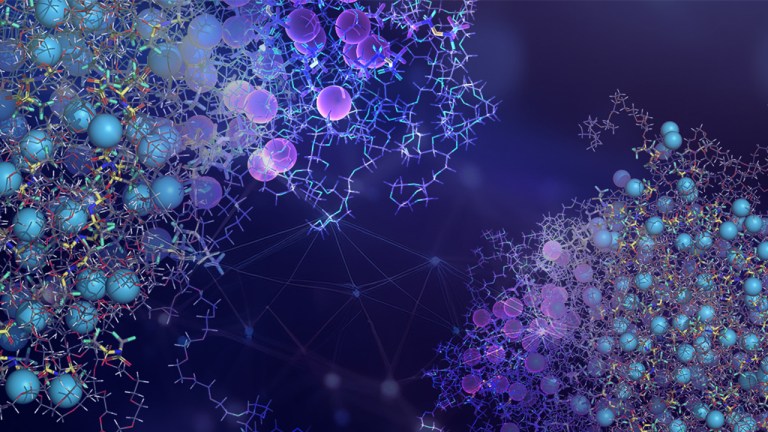 Webinar
Materials Science
Webinar
Materials Science
- Feb 26, 2025
High-performance materials discovery: A decade of cloud-enabled breakthroughs
This talk will showcase how Schrödinger’s integrated materials science platform enables massive parallel screening and de novo design campaigns across diverse applications.
Documentation
- Documentation
Materials Science Panel Explorer
Quickly learn which Schrödinger tools are the best fit for your research.
- Documentation
Online Help and Documentation
An online resource of information and instruction on how to use Schrödinger software including user manuals, panel descriptions, installation guides, reference sheets, tutorials, and more.
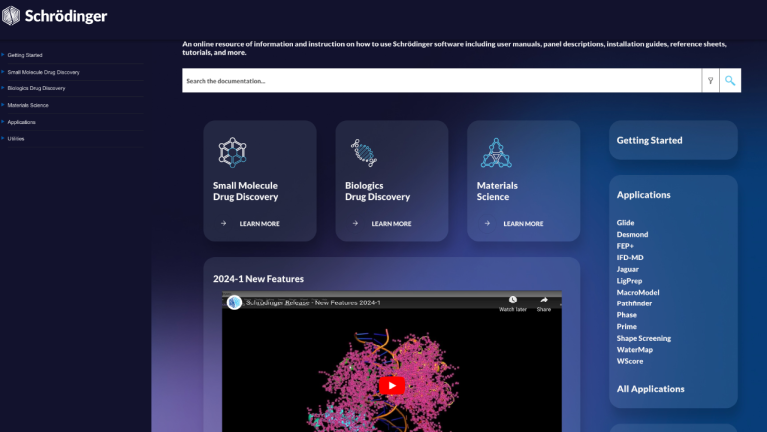 Documentation
Materials Science
Documentation
Materials Science
Materials Science Documentation
Comprehensive reference documentation covering materials science panels and workflows.
Tutorials
 Tutorial
Materials Science
Tutorial
Materials Science
Introduction to Materials Science Maestro Tutorial
An introduction to Materials Science Maestro, covering basic navigation, an intro to building models and several of the key functionalities of the graphical user interface.
- Tutorial
Disordered System Building and Molecular Dynamics Multistage Workflows
Learn to use the Disordered System Builder and Molecular Dynamics Multistage Workflow panels to build and equilibrate model systems.
- Tutorial
Introduction to Geometry Optimizations, Functionals and Basis Sets
Perform geometry optimizations on simple organic molecules and learn basics regarding functionals and basis sets.
Training Videos
 Video
Materials Science
Video
Materials Science
Getting Going with Materials Science Maestro Video Series
A free video series introducing the basics of using Materials Science Maestro.
 Video
Materials Science
Video
Materials Science
Building Small Molecules in MS Maestro
The sixth video in the Getting Going with Materials Science (MS) Maestro Video Series: 2D Sketcher, 3D Builder, and Force Field Minimization.
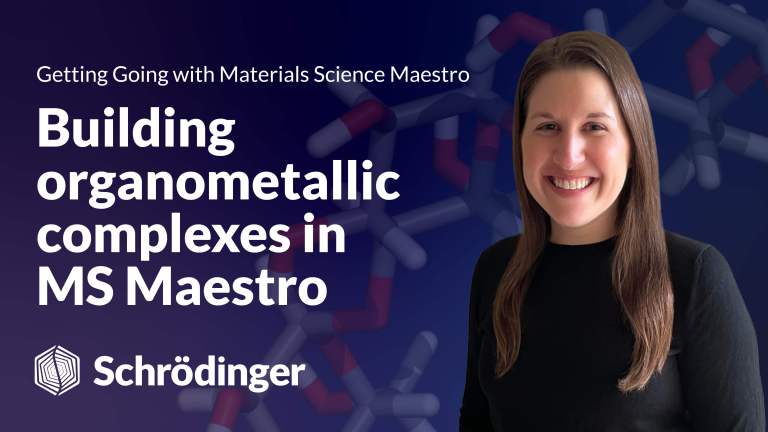 Video
Materials Science
Video
Materials Science
Building Organometallic Complexes in MS Maestro
The seventh video in the Getting Going with Materials Science (MS) Maestro Video Series: Buidling an organometallic complex.
Publications
- Publication
- Mar 17, 2025
Leveraging high-throughput molecular simulations and machine learning for the design of chemical mixtures
Chew, et al. npj Computational Matererials, 2025, 11, 72
- Publication
- Mar 5, 2025
A robust crystal structure prediction method to support small molecule drug development with large scale validation and blind study
Zhou, et al. Nature Communications, 2025, 16, 2210
- Publication
- Dec 10, 2024
Calculating apparent pKa values of ionizable lipids in lipid nanoparticles
Hamilton, et al. Molecular Pharmaceutics, 2024
Case Studies
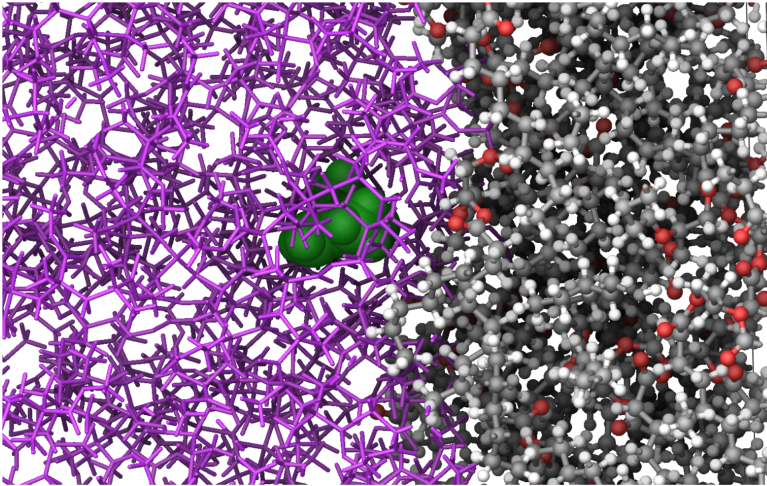 Case Study
Materials Science
Case Study
Materials Science
 Case Study
Materials Science
Case Study
Materials Science
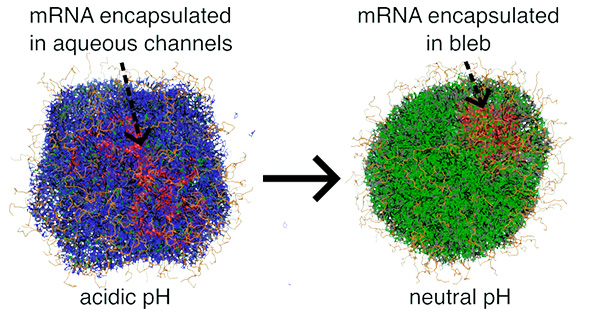 Case Study
Materials Science
Case Study
Materials Science
White Papers
 White Paper
Materials Science
White Paper
Materials Science
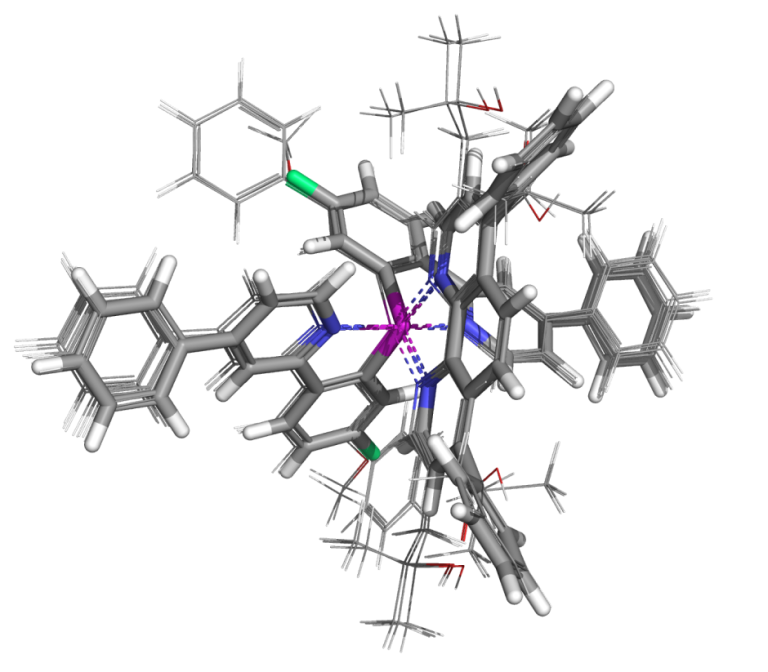 White Paper
Materials Science
White Paper
Materials Science
 White Paper
Materials Science
White Paper
Materials Science
Quick Reference Sheets

Latest insights from Extrapolations blog
Training & Resources
Online certification courses
Level up your skill set with hands-on, online molecular modeling courses. These self-paced courses cover a range of scientific topics and include access to Schrödinger software and support.
Free learning resources
Learn how to deploy the technology and best practices of Schrödinger software for your project success. Find training resources, tutorials, quick start guides, videos, and more.


